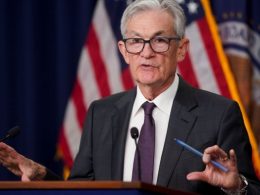Unlock the White House Watch newsletter for free
Your guide to what the 2024 US election means for Washington and the world
Ten days into the Trump administration, it’s hard to say which is worse — the targeted spreading of fear by raids on immigrant workers and native Americans or the wanton destruction caused by the casual suspension of foreign aid. Earlier this week, secretary of state Marco Rubio had to rush to issue an emergency temporary reprieve to the 20mn people, including half a million children, currently being kept alive by antiretroviral drugs under the US Pepfar (President’s Emergency Plan for Aids Relief) programme, principally in Africa. The edict suspending foreign aid had reportedly already caused some Aids sufferers to be denied drugs, and Pepfar’s future remains uncertain.
Pepfar has helped turn a pandemic engulfing much of the continent into just another public health problem to be managed. It’s striking that its creator was George W Bush, like Trump a conservative president who otherwise diminished the US’s reputation abroad and trashed its fiscal probity at home.
The standard view of acts such as cutting aid is that they are foolish even on the basis of hard-headed self-interest because they diminish the US’s soft power abroad. That’s possibly true, but Pepfar and the Millennium Challenge Account (MCA), a separate aid programme set up around the same time by Bush, were not simply crude attempts to buy influence. They proved a genuine good-faith break with decades of cynical American aid that had kept foreign policy clients like Pakistan and Egypt in the US camp but did little to make lives there better off.
As a reporter then covering aid and development in Washington, it took me some time, amid the administration’s dissembling over the Iraq war and much else, to realise that the Bush aid initiatives were for real. After a while it became obvious and even occasionally amusing that the US was earnestly inventing aid programmes as it went along. The MCA was triumphantly announced ahead of a UN development summit in Mexico in 2002 and then had to be “clarified” a few days later to reveal that the budget was twice as big as first claimed. The rather endearing story at the time was that the White House had simply misunderstood its own numbers.
Bush announced Pepfar in a State of the Union speech in 2003, saying it would replicate in other African countries the successful Ugandan model of administering antiretrovirals (ARVs) through a network of medical centre hubs with satellite distribution units. Leaving aside the irony of the Bush administration encouraging a socialist model of centralised public healthcare, the plan again had to be somewhat changed — one of the main architects being the immunologist Anthony Fauci of Covid pandemic fame — after it turned out most recipient countries didn’t actually have Uganda’s institutional set-up.
But Pepfar not only worked, it also challenged development orthodoxy. Rather than painstakingly building systems of public finance and healthcare, it hurled money at a specific problem and got results. It was widely believed mass ARV therapy would not be possible. Pepfar showed it was. The US also overcame its intrinsic suspicion of multilateral initiatives and led the financing of a new “Global Fund” to combat Aids, tuberculosis and malaria set up in 2002. Credible estimates are that Pepfar has saved 26mn lives.
The lobbying that overcame the traditional visceral US resistance to foreign aid also managed to unearth hitherto unsuspected reserves of compassion on Capitol Hill, often linked to religiosity. At the time, I spoke to Republican lawmakers who seemed to have only the sketchiest idea about how development aid worked but had received visits from the rock star Bono, trusted him and were accordingly prepared to spend taxpayers’ money to help Africa.

Remarkably, Bono persuaded North Carolina senator Jesse Helms, the hardline conservative Republican who used to talk about aid going down foreign “ratholes”, to fund debt relief and HIV-Aids treatment in developing countries. Helms was won over in particular by the plight of babies born with HIV who were indisputably innocent victims. The general tactic of seeding every development campaign with an emoting celebrity has become tedious, but this was impressive work.
But the aid programmes weren’t part of a general internationalist mindset. The Republican isolationist tradition remained strong — and was exploited by Trump with regard to Bush’s Iraq war during campaigning for the presidential nomination in 2016. In fact, Bush himself allowed Iraq to slide into chaos after the disastrous invasion. He was fundamentally not a nation-builder.
The global Doha round of trade talks in effect collapsed during Bush’s administration, as the US (along with other countries) was not prepared to make the sacrifices necessary to get it to work. Despite Pepfar, US relative influence in Africa continued to diminish, as it had since the end of the cold war. The 2000s was the decade when the Chinese rather than the American footprint expanded over the continent.
Pepfar and the other aid programmes simply reflected a moment when campaigners managed to mine a vein of decency in a Republican administration and among lawmakers on Capitol Hill. The fact that it was threatened with casual destruction this week shows how far decency has leached from the White House. If it still exists among Republicans in Congress, it’s hiding very effectively. The world has become darker for it.
Source link









